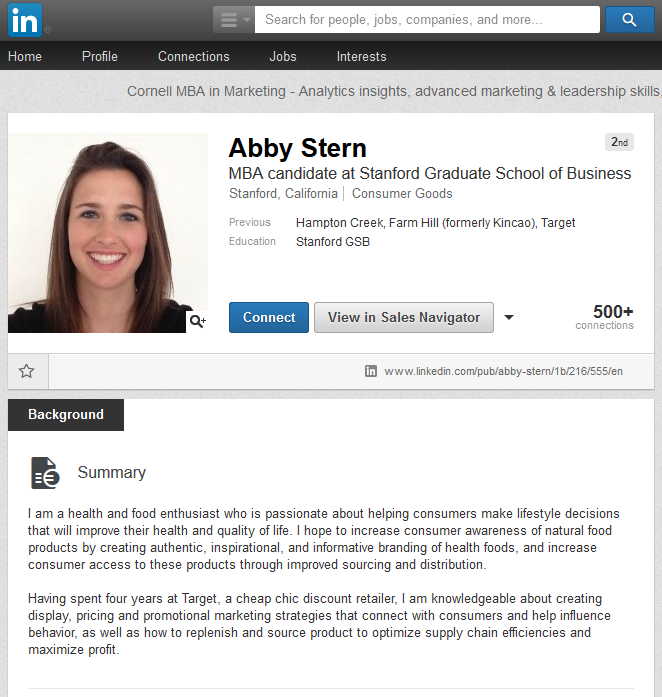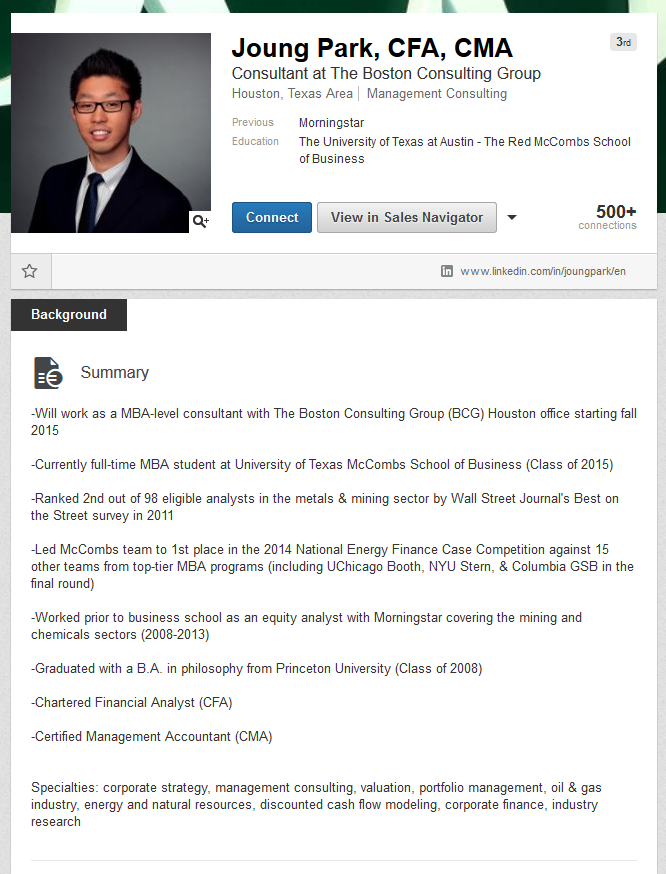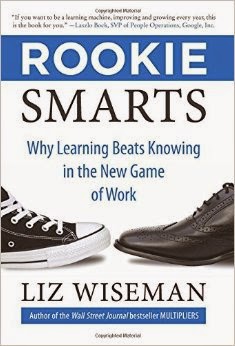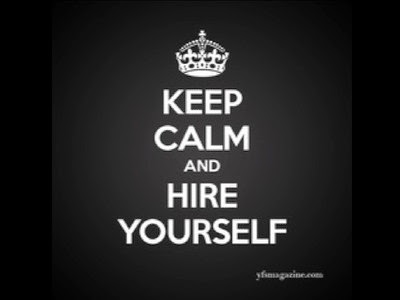This post was originally published on LinkedIn
Before you hit that pause button on your career and head to two years
of business school this fall, there are a few things you might want to
consider doing in the next few months to help you hit the ground
running.
 |
| Jaren Wilkey/BYU |
Strengthen your network. Sometimes it’s
easier to get meetings with people when you’re already gainfully
employed. If you have any contacts at the companies you might want to
pursue after business school, you might be better off reaching out now
before you leave your current job.
Hold off on some purchases until you get your student discount.
There are some steep student discounts on software, Adobe and Microsoft
products in particular. You may even want to hold off on buying that
new Macbook pro, since being a student is one of the only ways to get
discounts on Apple computers.
Spruce up your online identity.
Your online presence is going to be an important part of your
recruiting, be mindful of your online brand. Take some time to clean up
your social media profiles. Add a professional looking picture to
LinkedIn and other social networks.
Get copies of past performance reviews.
It’s amazing how quickly you can forget about even your own
accomplishments. Past performance reviews will give you some great ideas
on what to include on your resume, which will be getting quite the
makeover in the next few months. Also, it’ll give you ideas of stories
and experiences you can share in your upcoming job interviews.
Maximize benefits from your current job.
Chances are that your current benefits are better than the student plan
or private insurance you’ll have to buy during business school. Go to
the dentist for a cleaning and get that last cavity filled. Get a
physical to make sure you’re healthy. Lastly, if you wear contacts or
glasses, use your full yearly allotment before you quit, to buy back
ups.
Do a mini internship. If you’re planning on
making a drastic career switch, doing an internship, even if it’s short
or unpaid can help you be more marketable for your internship in
between your first and second year. Look for an internship that is spot
on with the experience you lack.
Prepare your finances.
Depending on your situation you might want to speak to an expert, but
in general you should think about moving money you know you will need
over the next two years out of risky investments and into cash or very
stable investment classes. You want that hard earned money to be there
for you in a few months when it’s time to write that first tuition
check, regardless of unexpected market swings.
Plan a vacation.
There are not that many times in your life where you’ll have the
ability to take off significant chunks of time for a vacation, penalty
free! The few months right before business school is one of those times,
plan accordingly.
Start exercising. Chances are
you will not create an amazing health and exercise routine during
business school without conscious effort. The counterpoint, if you build
the habit prior to starting school it will be that much easier to build
on it in school and for the rest of your life.
Build in reflection. Everyone
has their own method, maybe writing, talking, reading, meditating, or
listening. One of the advantages of business school is reflecting on
both where you are and where you want to be. If you start the habit
prior to beginning the program you will not only gain more from the
program, you will probably find a more fulfilling and happier version of
yourself.
The next two years will probably be some of the most
memorable in your life, take the next few months to prepare to hit the
ground running to help you find your dream job, have some fun and save
some money.
A big thanks to
Ben Faw for his help in writing this post.











